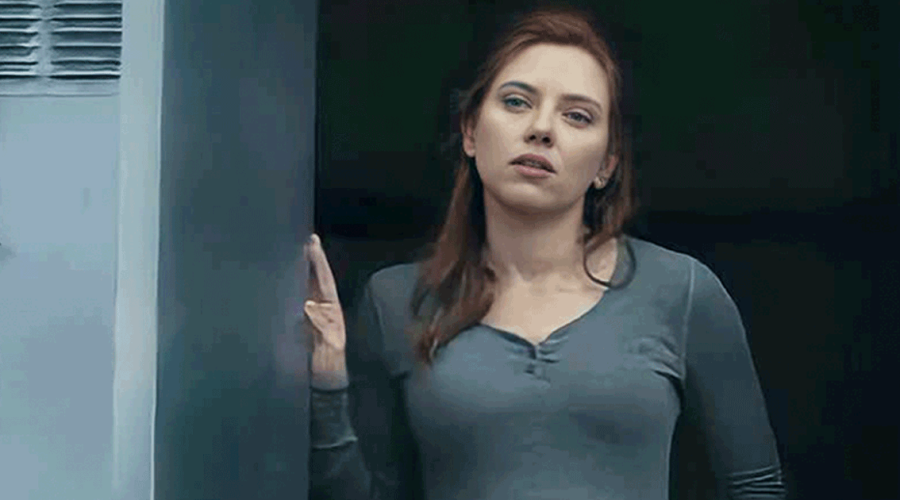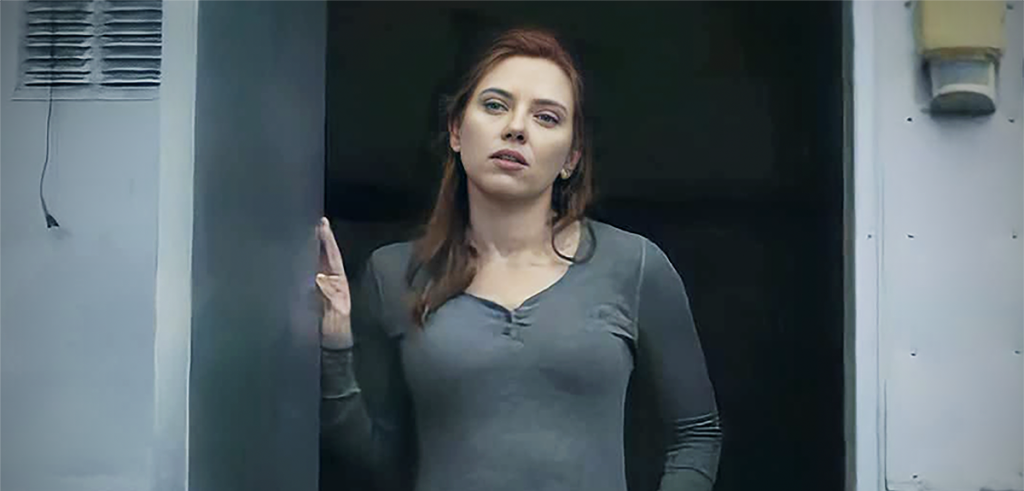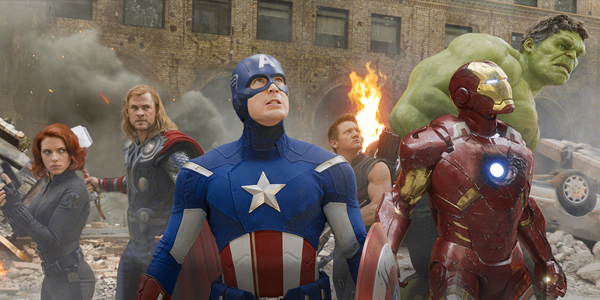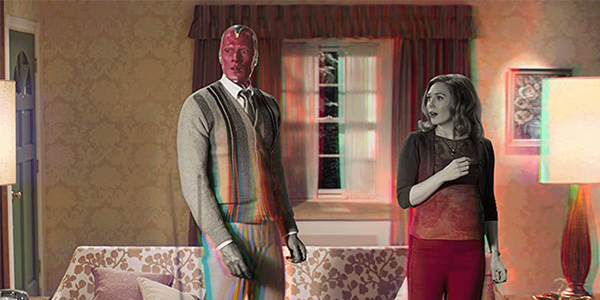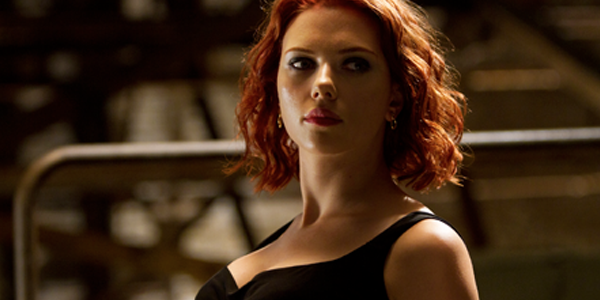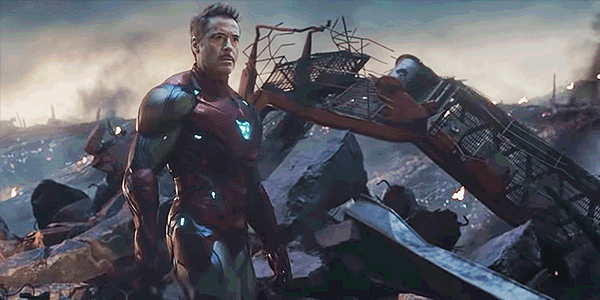Review: Black Widow
the MCU on Cineluxe
related articles
Sign up for our monthly newsletter
to stay up to date on Cineluxe
This empowered-female action film also takes on weighty issues of family and freedom
by Dennis Burger
July 9, 2021
If you’re clicking on a review of Black Widow right now, I can only assume you’re here in search of one more person’s opinion about whether it was worth the wait. The simple answer is is: Yes. If you don’t mind, though, I’m gonna ramble on for a bit about why.
I’m normally not one to invest much energy in the horse-race discussion about movies like this. But in the case of Black Widow, it’s hard to ignore. It was supposed to come out last year but ended up being one of many casualties of the global pandemic. Meant to kick off Phase 4 of the Marvel Cinematic Universe, it got beaten to that punch by WandaVision, Falcon & The Winter Soldier, and Loki. It’s probably the biggest Disney movie to date to be available via Premier Access, three months ahead of its free-to-view streaming release on October 6, 2021.
But none of that really matters because none of it has any bearing on the quality of the movie. And yet, it’s a hard discussion to avoid.
Black Widow was always going to be a movie whose release was a little weird, temporally speaking. The bulk of the plot takes place between Captain America: Civil War (2016) and Avengers: Infinity War (2018) but it’s a story that couldn’t really be told until after Endgame (2019), not necessarily for narrative reasons but for emotional ones. To fully make sense of the character of Natalia Alianovna Romanoff (Scarlett Johansson) in this story, you have to understand not only the redemption arc she’s been on since first introduced to the MCU in Iron Man 2 but you also have to know that she’s the type of person who would make the sacrifice she did in the last Avengers movie.
All of that makes Black Widow a puzzle piece that you can only place in time, not merely space. But that’s sort of fitting for a character as complex as Natasha. I won’t bother to even begin to attempt to explain the plot. Doing so would make me sound ridiculous. It’s got a thousand tiny moving pieces and it plays a very dangerous game with them in that it all flirts with being just a little too much. I’m normally turned off by plots this complex. Give me a simple story any day of the week—but writing simple stories is difficult.
Here’s the thing, though: The convolutions of the script don’t seem to be a product of laziness but of necessity. Story writers Jac Schaeffer (WandaVision) and Ned Benson (The Disappearance of Eleanor Rigby), along with screenwriter Eric Pearson (Thor: Ragnarok), seem to understand that this one had to do a lot of heavy lifting and cover a lot of ground. It also manages to pull off a trick few stories do successfully—it manages to be a critique of a thing while also being that thing itself. Black Widow is a comic-book action movie, yes, but it’s also a subversion of the genre, a sendup of its tropes, and a cheeky rumination on the dangers of idolizing these impossibly perfect characters.
It only works because the writers understood three key things:
Firstly, pacing: For every big action set piece (and there are plenty of them, with car chases that rival Baby Driver and fight sequences that are every bit as stupid and amazing as anything in the John Wick series), there’s at least as much time devoted to quieter, tenderer character moments.
Secondly, tone: The movie deals with a lot of heavy material, from psychological manipulation to the exploitation of vulnerable women to Cold War hangover, but it always strikes the right balance between sincerity and levity. It knows when to take itself seriously and when not to. It’s heartbreaking one moment and legitimately hilarious the next.
Thirdly, and perhaps most importantly: It just knows what it’s about, and although it would take two hours to recount the narrative beat by beat, it’s easy to explain what it all means. Ultimately, Black Widow is about family—specifically that weird and contradictory set of emotions that comes from interacting with your family now that you’re an adult, that troubling realization that your parents were just cosplaying as adults for your entire childhood, and the baffling combination of rage and familiarity that only your relatives can drag out of you simultaneously.
It’s also about freedom—not only the necessity thereof but also the cost and why that cost is worth paying. While playing around with that theme, the story also touches on notions of free will and animal instinct. But all of that really points back to freedom.
And that’s it. As many twists and turns as there are in the plot, all of them ultimately support the themes of family or freedom, or both. That’s what keeps Black Widow grounded throughout, keeping it from devolving into utter chaos.
Can I just say, though, that this is yet another blockbuster movie I’m so glad I didn’t have to suffer through in a packed cinema? Disney+’s presentation far surpasses the quality of any commercial cinema I could reasonably reach in a half-day’s drive, and I also got to enjoy it without suffering the distractions of an auditorium full of chatty extroverts and their rowdy kids. At home, I could give it my full attention and even take a tinkle break halfway through without being forced to choose between skipping an action sequence or a bit of character development.
The Dolby Vision presentation is taken from a 2K digital intermediate, as most MCU movies are, which was itself sourced from original footage captured in a mix of 4K, 6K, and 8K. Fine detail abounds, not merely in closeups but also in long shots (which many of the action sequences are—a welcome break from the claustrophobic framing of most high-octane movies these days). Colors are gorgeous and the high dynamic range is employed spectacularly.
There are a few very minor and very fleeting blemishes, but I’m not sure whether they’re a consequence of post-production, Disney+’s encoding, or the fact that I streamed it on Day One, simultaneously with millions of other people. Evidence for the latter comes from the fact that, on my Roku Ultra, with my 250mbps internet connection, the stream didn’t switch from 1080p to 4K until about two-thirds of the way through the Marvel Studios logo that precedes the movie. Disney+ normally launches at 4K for me.
The evidence that these blemishes are baked into the master is circumstantial. During a shot very early on that takes place in a shadowy bathroom, there’s about a quarter second of very, very minor banding as the flat tiles of the environment give way to the shadows. But the very next shot is in the same environment with the same tonal variation, and there’s no banding. There’s also a long shot of Natasha’s trailer that exhibits a touch of moiré for a few frames. But a few minutes later there’s another shot of the exterior photographed from the same distance in roughly the same light, and there’s no moiré.
So I can’t be sure if these momentary imperfections can be blamed on streaming or taxed servers or what. But thankfully they add up to no more than a cumulative second over the course of a 135-minute film. Otherwise, Black Widow looks stunning.
It also sounds way, way better in my home than it would in any movie theater I’ve ever sat in. Mind you, the Dolby Atmos track seems to have been mixed for large auditoria, not home cinemas, so it can be a little too dynamic in spots. I also had to turn the volume on my preamp up to +3dB (with 0dB being cinema reference level) in order to unlock the full fidelity of the track, especially the bass. If you have a well-designed sound system, though, you’re in for a sonic treat. If, on the other hand, you’re trying to watch Black Widow with a soundbar as your only audio system—even a really good soundbar—you’re quickly going to discover what it feels like to pack ten pounds of you-know-what into a five-pound bag.
It remains to be seen, of course, whether Disney continues to support these day & date releases via Premier Access as Hollywood attempts to force a return to normal over the next year. All I can say is this: If I have the option to watch future Star Wars and Marvel movies—the only movies I really feel compelled to see Day One—in the comfort of my home, in quality this superior to even a good cineplex, for just $29.99? Sign me the heck up. I’ll never need to sully the bottom of my flip-flops with sticky popcorn grease ever again.
Dennis Burger is an avid Star Wars scholar, Tolkien fanatic, and Corvette enthusiast who somehow also manages to find time for technological passions including high-end audio, home automation, and video gaming. He lives in the armpit of Alabama with his wife Bethany and their four-legged child Bruno, a 75-pound American Staffordshire Terrier who thinks he’s a Pomeranian.
PICTURE | Fine detail abounds in both closeups & long shots, colors are gorgeous, and the high dynamic range is employed spectacularly
SOUND | The Atmos track seems to have been mixed for movie theaters, not home theaters, so it can be a little too dynamic in spots, but if you have a well-designed sound system, you’re in for a sonic treat
© 2023 Cineluxe LLC
